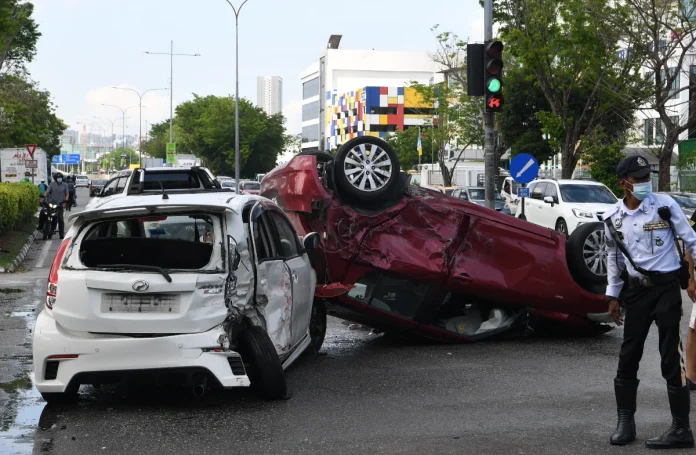Law described the current system for investigating transport accidents as “fragmentary and accusatory”
PETALING JAYA: The independence of the proposed Malaysia Transport Safety Board (MTSB) must be non-negotiable if it is to improve the country’s transport safety, according to Universiti Putra Malaysia Road Safety Research Centre head Assoc Prof Dr Law Teik Hua.
Law described the current system for investigating transport accidents as “fragmentary and accusatory”, with inquiries divided between the police, the Malaysian Institute of Road Safety Research (Miros) and various ministries.
“This indicates we may have already reached a dead-end within our investigations by merely pointing to immediate provable factors such as drivers or specific vehicles, rather than seeking to identify underlying systemic factors.”
The MTSB, he added, should function as a fully independent agency, similar to Australia’s Transport Safety Bureau or the United States’ National Transportation Safety Board.
“The main danger posed by making it work as a part of a ministry, like the Transport Ministry, is the conflict of interest implied. A ministry regulates the very industries and infrastructure which could come under investigation. This could result in diluted results, delayed reports and weaker recommendations,” Law warned.
Independence, he stressed, is essential not just for credibility but also for objectivity.
“An independent agency is imperative to gain the trust of any citizen and to make recommendations free from any biases.”
Law emphasised that the MTSB must prioritise expertise from its inception.
Beyond examining crash sites, the agency must have the legal and technical capacity to analyse complex data, including digital tachograph records, event data from vehicles, cockpit voice recorders and flight data recorders in aviation.
“There has to occur a paradigm shift from investigating incidents to exploring system-wide safety patterns. The agency has to employ extremely specialised staff – engineering staff, human factors staff and system safety analysts – who operate free from political interference.”
He added that the MTSB should consolidate existing investigative functions.
“There is a role to be played by the MTSB as a body completely responsible and supreme over matters concerning investigating safety. This does not negate other functions such as those performed by the police, which can continue criminal investigations, or Miros, which can continue research, but it centralises safety accountability, producing findings that are final and clear to the public.”
Law acknowledged that establishing a strong, independent MTSB will face significant hurdles.
“Politically, ministries may be reluctant to surrender control. Institutionally, creating a professional ethos within a new agency is a challenging task.
“Technically, recruiting and retaining experts in forensic engineering and data analytics requires competitive remuneration and a clear career structure.
“The government needs to overcome these barriers by embedding independence and funding into law, making the MTSB directly accountable to Parliament rather than to a minister.”
Law also urged that the MTSB’s role extend beyond major incidents to systemic safety issues.
“Certainly, it can investigate individual disasters, but its greatest role is to take a proactive approach to black spots, highway design, signage, traffic calming measures, and other systemic safety concerns. This allows Malaysia to adopt a preventative rather than reactionary stance towards the tragically high rate of road fatalities.”
The MTSB has been under discussion in Malaysia for over a decade. First proposed in 2014, the suggestion followed the 2013 Genting Highlands bus crash.
In Parliament last Monday, Transport Minister Anthony Loke said the board’s establishment had been repeatedly delayed due to changes in government, restructuring of agencies and overlapping investigative functions.
He also said the ministry is taking into account comparisons with international agencies and that independence, as with any investigative body, is a fundamental principle.
Loke added that the cabinet memorandum on its formation is expected to be finalised before the end of the year, with a draft bill prepared by the Attorney-General’s Chambers and tabled in Parliament next year.








